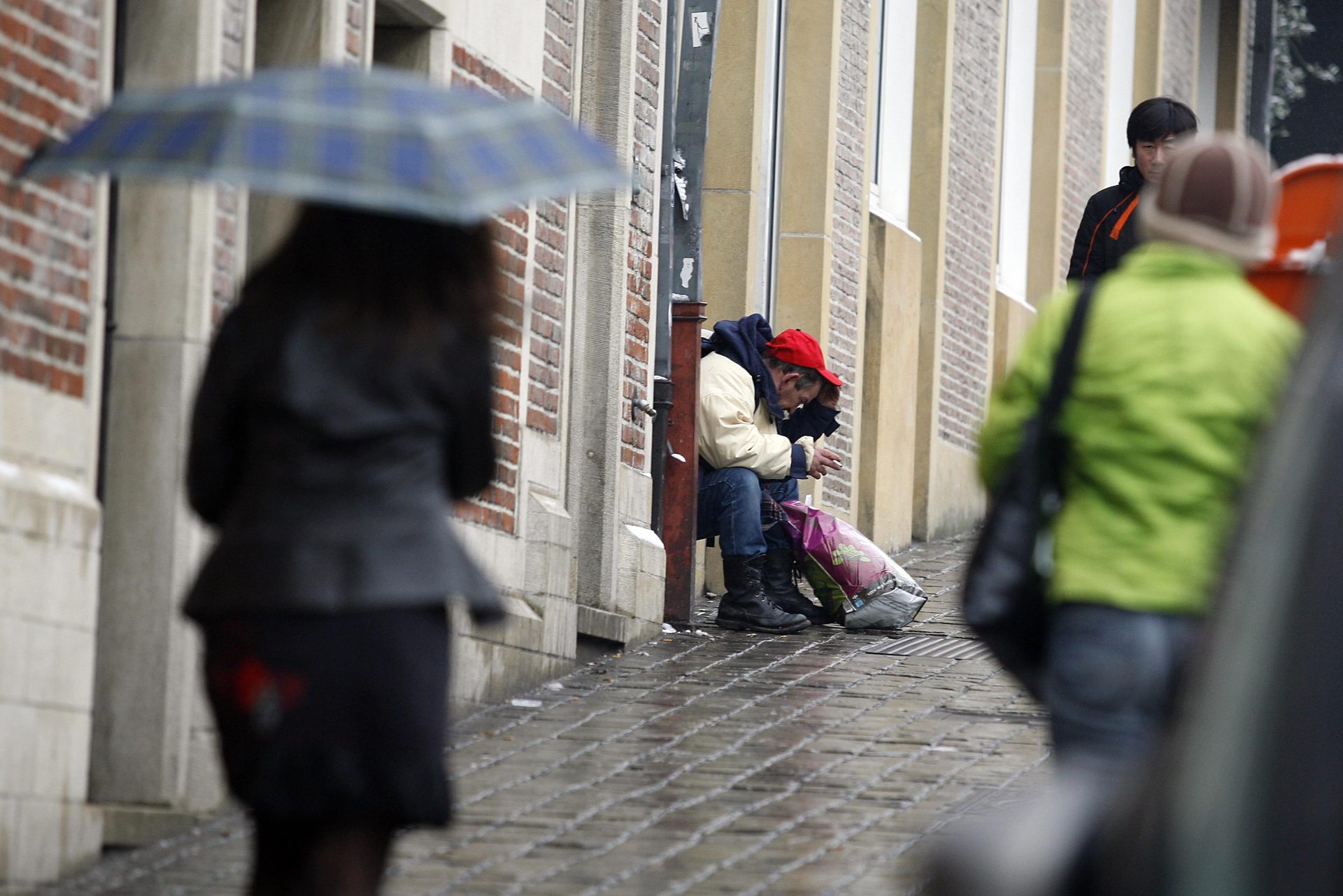The majority of Belgians are happy most or all of the time, apart from people living in the country's capital, who are less positive about life.
The Belgian statistics service Statbel reported these findings based on a survey of 5,000 citizens. In the second quarter of this year, 65.4% of people living in Belgium said they felt happy all the time (9.1%) or most of the time (56.3%). However, behind the national figures hides a significant difference per region.
Those living in Flanders seem to be notably happier than people living in the other Belgian regions: 70.7% of Flemish people said they are happy at least most of the time.
Among the Walloons, 60.2% say they are always or mostly happy. In Brussels, the percentage is significantly lower, at just 51.3%.
Harsher life
Various studies have shown that people are more likely to be unhappy when living in an urban environment than in a rural area. Demographer Patrick Deboosere (VUB) explains what could contribute to a negative perception of life in the Belgian capital.
"Measuring whether someone is happy is of course a very subjective question that is answered differently around the world, as it can vary hugely what makes people happy," Deboosere he told The Brussels Times. However, he noted that what could explain the difference in Belgium on a regional level is the socio-economic conditions people face.
"On the one hand, Brussels is a very rich city and many people are well-off, but there is also a large concentration of poverty. Many people here have to work really hard and try to survive in very challenging circumstances every day," Deboosere said.
He explained that while money does not determine a person's happiness when they are already wealthy, it does play an essential role if they don't have enough of it. "Then you suffer permanently. Those people have to deny themselves things and there is also the fact of the uncertainty of your existence. This certainty or uncertainty is also an element that massively contributes to happiness."

Credit: Belga / Jorge Dirkx
He added that a second major contributor to this sense of unhappiness is the fact that many people see others suffering around them. The fact that various policies and measures in recent years have failed to provide an answer or solve the issue, can often mean people cannot comprehend why those in need are not being helped.
"Poverty is a lot more visible in Brussels. There are many people living on the streets, and citizens of Brussels are confronted with this homelessness on a daily basis, while in Flanders and Wallonia, this is less the case," Deboosere said.
"Even if they have it good themselves, many people say they find it unbearable to see others living like this. They have to step over homeless people, so to speak if they want to take a metro or go to the shop."
Other differences
At the Belgian level, Statbel noted a difference in age and happiness: young people (aged 16-24) are generally the happiest population group (71.9% indicated feeling happy most of the time), in contrast to people aged 65-74 (57.4% of the time).
Belgian workers also tend to score better on the happiness chart: those who are employed feel happy almost 72% of the time, compared to pensioners (58.6%) and the unemployed (38.6%). Especially people with long-term disabilities indicated feeling very unhappy (32.1%). On the other side of the happiness spectrum are students (77.5%).
People who are in a relationship, either with or without children, are also more likely to say they are always or usually happy – around 70% compared to 46% among singles and 50% of members of single-parent families.
Statbel's figures confirmed that people with higher incomes also tend to feel happier. Among those with highest income, more than three-quarters of people say they feel happy most of the time or always, while only half of people with the lowest income feel this way.

